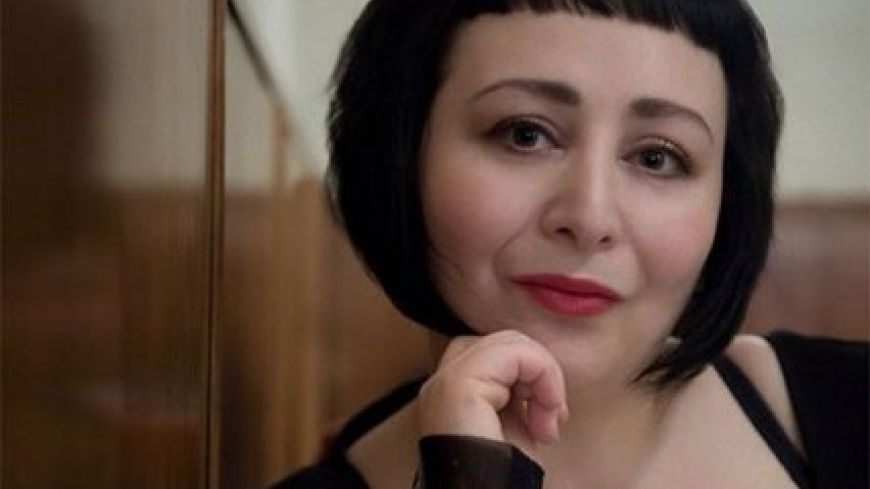
This was an introduction to the two authors as a part of the Newton First Book Award and was chaired by Rosemary Burnett who kept the session ticking over very effectively; she was not helped by a lack of questions to the two authors from the audience.
Julia Rabinowich was born in St Petersburg, which she left at the age of seven, to move to Austria where she is an interpreter for asylum seekers. Her novel Spaltkopf or, to use the English title, "Splithead" tells of the experiences of a young girl leaving the Soviet Union and moving to Vienna.
She admitted that much of the novel was based on her own experiences and the challenges she faced. She describes a determination to speak German better than her classmates and her fear of any trips of any kind in the future, presumably because of the dread that she might be cast into some other unknown environment. There was mention of the loss of her father and subsequent repercussions involving complex love affairs and experiments with drugs.
She said that Splithead was a symbol to depict oppression and repression which she felt takes on the most aggressive form in dictatorships. I actually found the reading interesting, but difficult to follow; possibly this was due to Julya's accent and probably the novel itself would be easier to follow - in any event extracts are never a satisfactory way to judge a novel.
Kalinda Ashton was born in Melbourne where she is a teacher of writing and editing, so she would seem to be already in the writers 'camp'. Her book is about two sisters who are struggling to come to terms with the death of their brother in a house fire.
The extract she read described how one sister who was a teacher was being telephoned by her younger sibling who was distraught and seeking money - not for drugs she hastened to add, although the elder sister knew this would be the case.
The reading described how the elder sister felt having rejected this second request from her sister for money and how this upset her. This led her to think of her brother whom she had lost and she describes imagining him at all the various stages and ages of his life until he died.
Kalinda felt that there was an 'inversion of thought' about the loss the sisters had suffered; she felt that due to the loss of their brother they were both afraid, but do not recognise that they are afraid.
Interestingly, both writers said that before writing their first novels they had both written plays and found this an easier way to fully express their thoughts and to do this more clearly.
Event: Monday 22 August, 10.15 am

